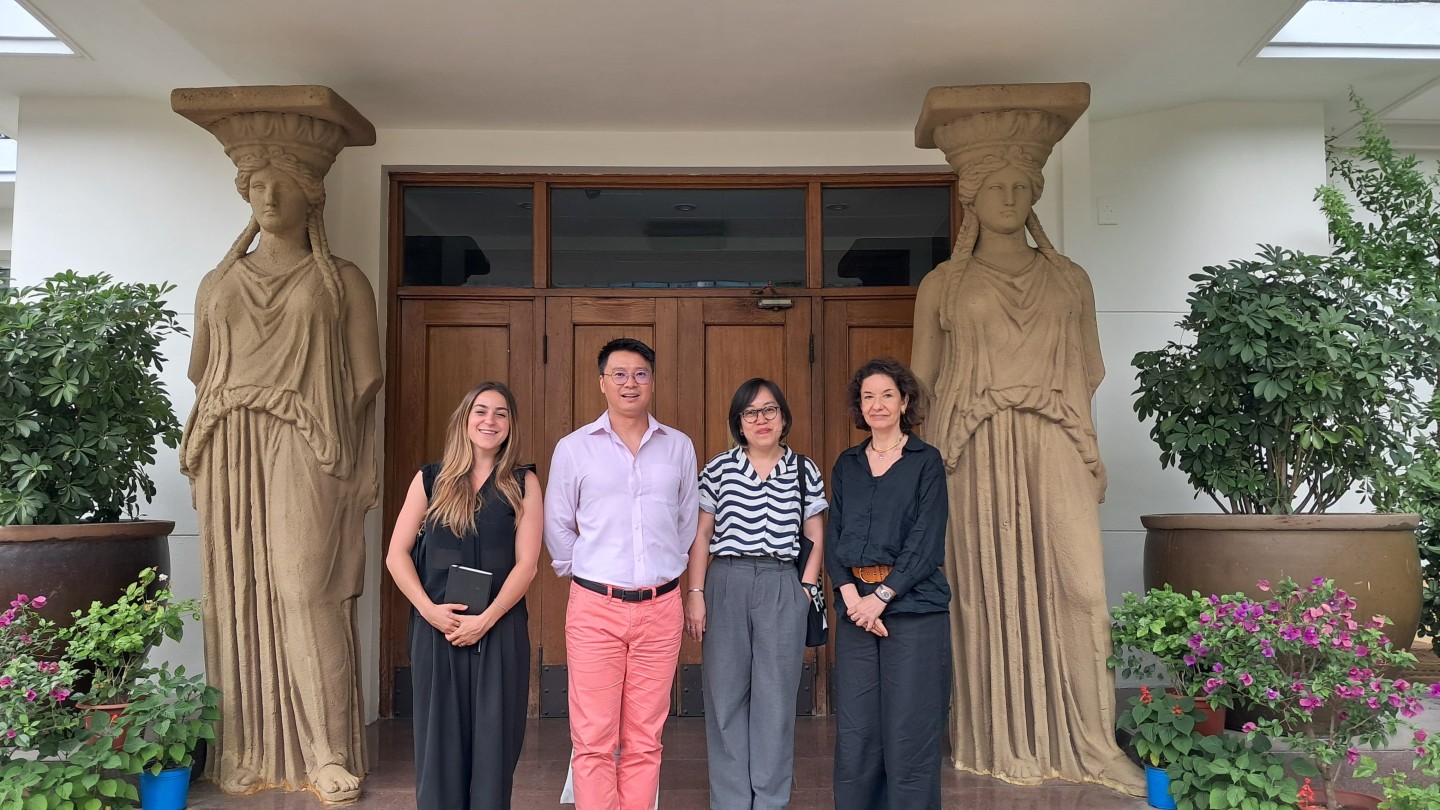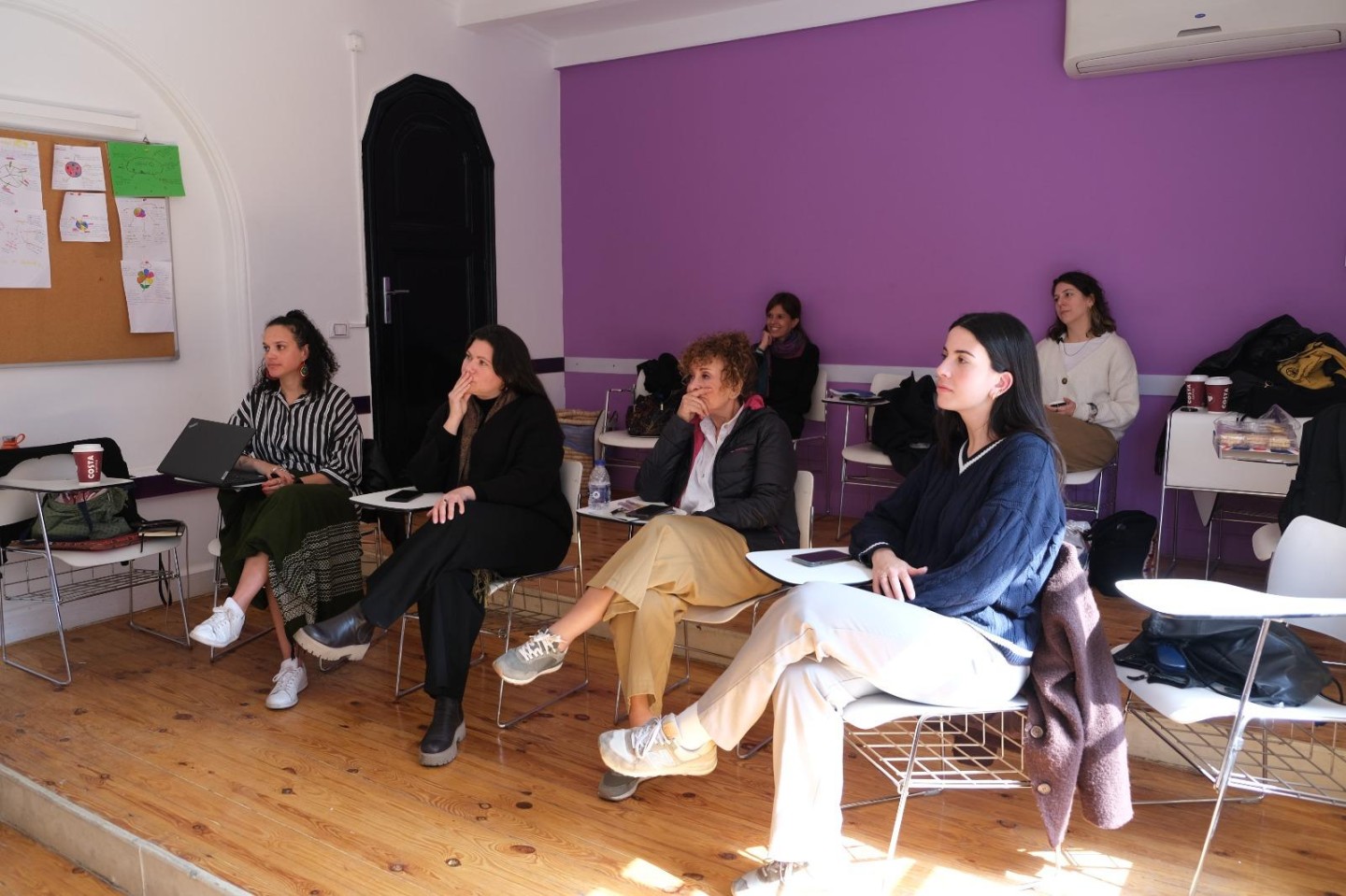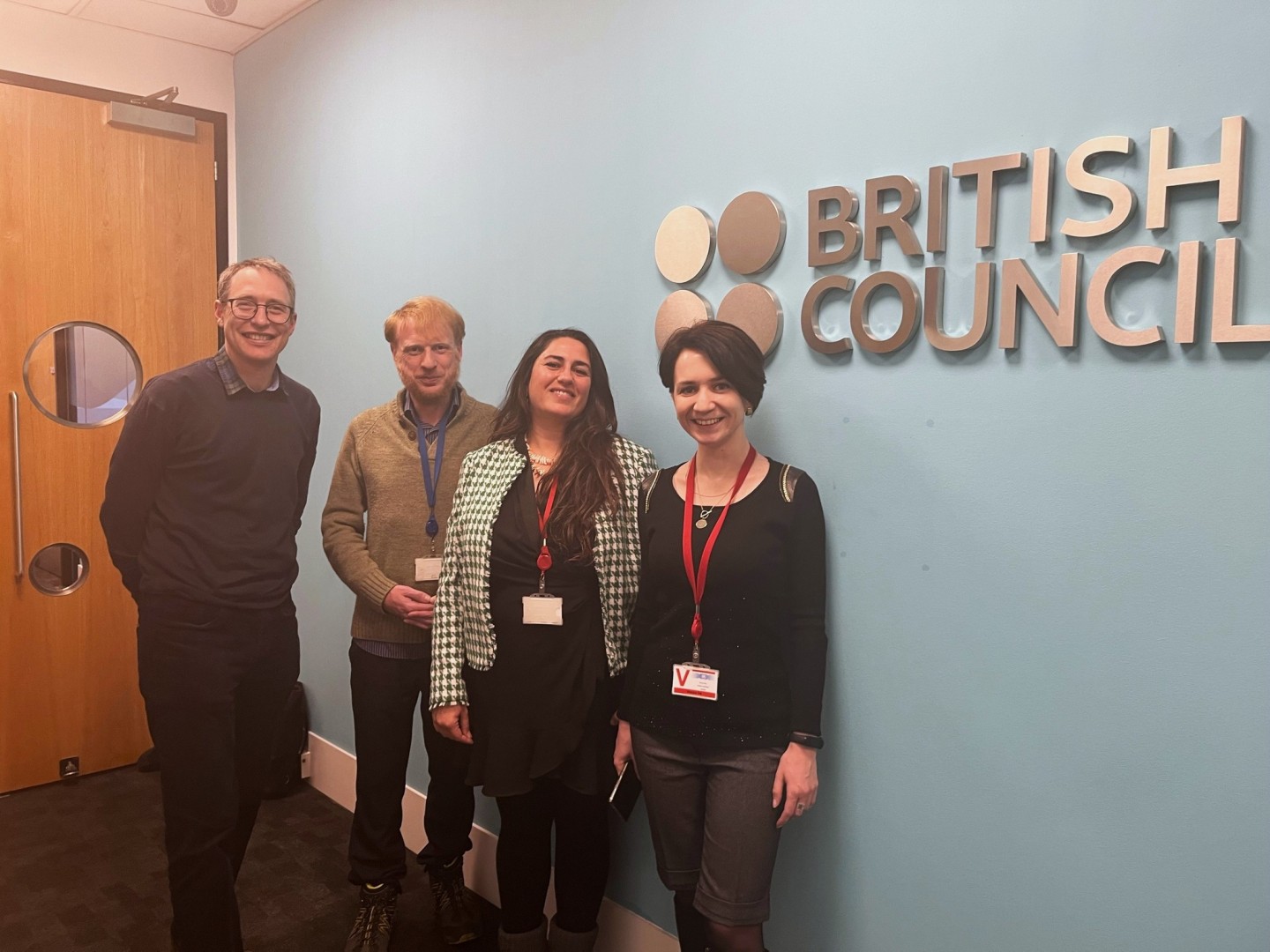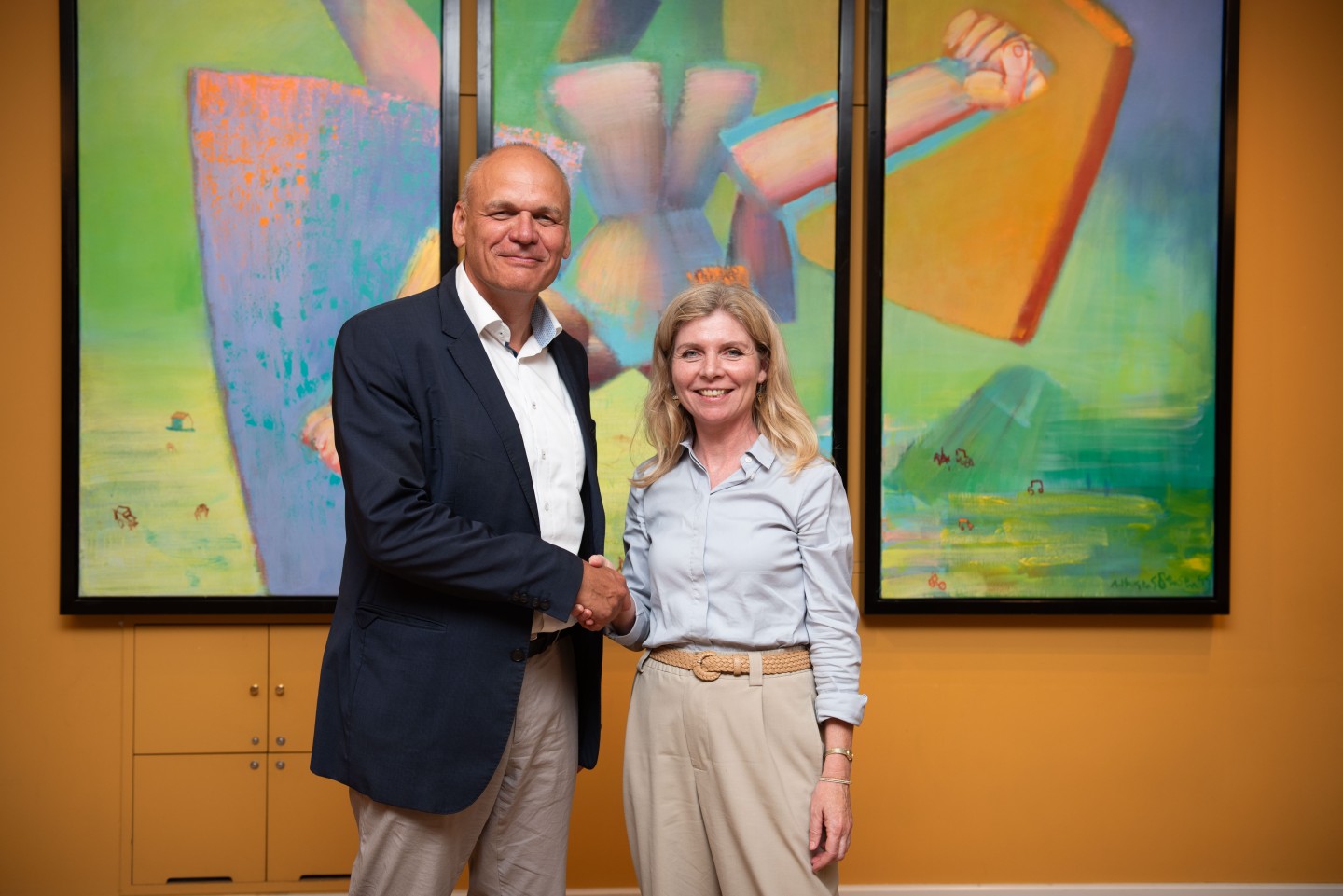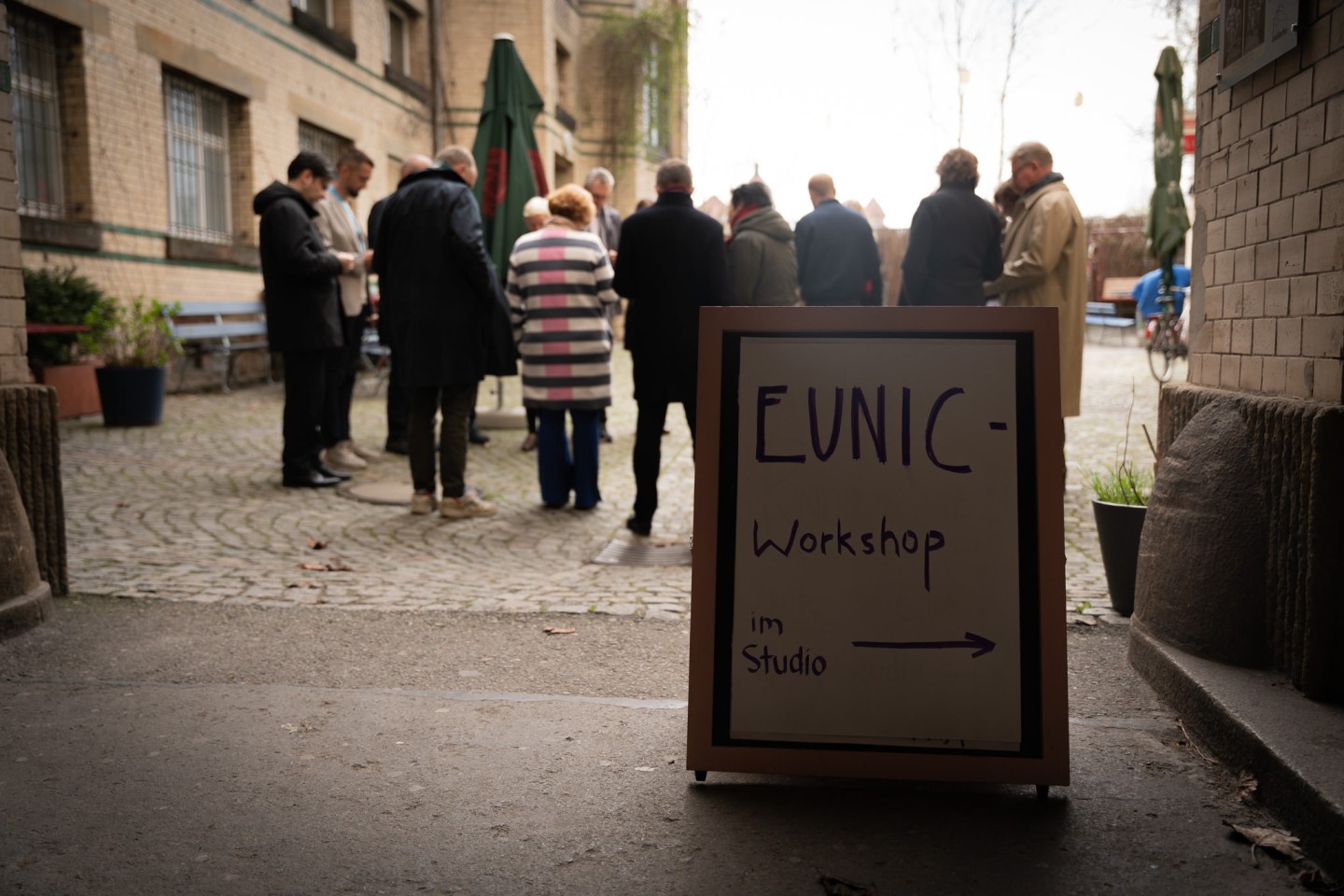
Job Shadowing at Goethe-Institut in Montreal
In November 2019, Mikołaj Cholewicz, Deputy Head of Mission of the Embassy of the Republic in Ottawa, spent four days at the Goethe-Institut in Montreal. He got acquainted with Goethe-Institut's language programmes, policies and internal work processes. In his personal blog post he shares his experience in Montreal.

The Goethe-Institut characterises German perfectionism combined with comprehensive approach, pleasant atmosphere, the newest teaching techniques and conveying a positive image of this state.
The decision to take part in the EUNIC Job Shadowing programme in Montreal came immediately to my mind. It is the closest destination to my workplace and this city is no doubt a centre for cultural activities across Canada. The first contact with the Goethe-Institut I had was in Poland over 20 years ago and I was curious what has changed since. I am extremely interested in the significance of language as a medium for promoting culture and history of one nation. The institute of Johann von Goethe founded in 1951, not only has long traditions, but also a set of standards, experience and an enormous network of institutes around the globe.
Job Shadowing at the Goethe-Institut in Montreal gave me the opportunity to get acquainted with its policy, achievements and work from the inside. But above formalities, organisations, tables, charts and data I found a positive and friendly atmosphere there. I had a series of individual and group meetings including with Ms Katja Melzer, the director of the institute, regarding its strategic goals, structure and principles. I also had the occasion to visit all main rooms and facilities (library, cinema, class, meeting rooms etc.) and meet all staff – which generally speaks three languages: German, English and French because of the character of the city of Montreal and Quebec province. Ms Eva Ledvig, head of the language department explained to me the complicated system of teaching German language at global level, as well as on a continental scale, where all branches of the Goethe-Institut in North America are subject to the Washington regional centre. I was told about the audit system to meet high internal standards and that there is a system of evaluation between groups of institutes. I was able to participate in classes at different levels (starting from A2, through B1 and up to C1) to see how adults and children engage in the process of learning and what are their motives and backgrounds.
It was quite fascinating, and I was especially amazed by the group of talented children who were very diligent. During one of the meetings I was informed about the scholarship programme and PASCH-network associating the schools teaching German from all over the world and I got acquainted with advertisements and activities in social media. I also tested online programmes and applications designed to encourage young people to learn the German language. I participated also in a students’ visit to the Institute during which an amazing exhibition on fall of the Berlins Wall was presented.
I have spent an excellent time during my Job Shadowing, discovering new areas of expertise and meeting nice and competent people. I am looking forward to the second part of my programme devoted to cultural activity and artistic as well intellectual collaboration.
The EUNIC Mobility Scheme (formerly known as the EUNIC Job Shadowing Scheme) is EUNIC's most important mobility activity enabling colleagues working at EUNIC members’ headquarters or in their branches worldwide to exchange knowledge and learn from each other. Between September 2019 and June 2020, 63 colleagues visited 28 different hosting organisations worldwide. Between November 2022 and June 2023, over 50 EUNIC colleagues are visiting 20 hosting institutions. The next edition will be launched in February 2023
